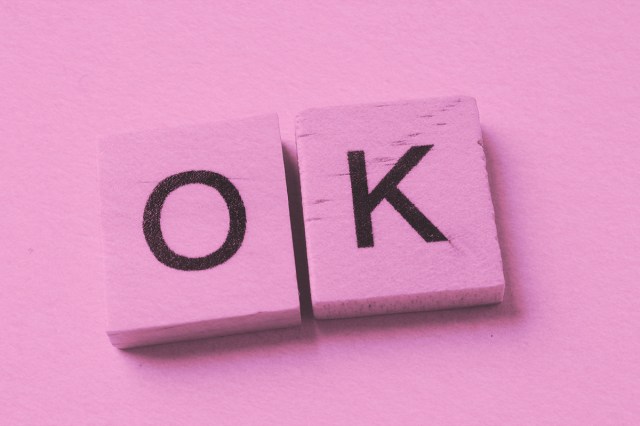
The humble “OK” became a fixture of the American lexicon thanks to 19th-century newspaper culture and a bit of political savvy from a presidential campaign. Several fads were popular among journalists during this time, particularly playful abbreviations and intentional misspellings. These quirks were meant to amuse — there were no Netflix comedy specials yet, after all — so “no use” turned into “know yuse” and “all right” became “oll wright,” for example. The twisted phrases were also shortened into abbreviations, much to the delight of readers who were in on the bit. So, “know yuse” morphed into “KY” and “oll wright” was “OW.”
Amid this playfulness, “all correct” made its debut. Adding to the eccentricity of 19th-century jargon, words that started with “C” were often swapped out for a “K.” The culmination of these linguistic fads led writers at the Boston Morning Post to transform “oll korrect” (from “all correct”) into “OK” in 1839. This usage might have faded away, as did other faddish abbreviations, were it not for President Martin Van Buren taking up the cause.
During his 1840 reelection campaign, Van Buren ran under the nickname “Old Kinderhook,” a nod to his hometown in New York. As the campaign gained momentum, “OK Clubs” cropped up around the country in support of the candidate, using the slogan “OK is OK” — a play on the original newspaper phrase “oll korrect.” Of course, political rivalry is nothing new, and his opponent William Henry Harrison co-opted the letters into puckish phrases such as “orful katastrophe.”
Though Van Buren was ultimately defeated, the catchy slogan cemented “OK” in the public consciousness. After the invention of the telegraph in 1844, “OK” became the go-to abbreviation to confirm message receipt. Today, “OK” remains a cornerstone of communication — who among us can get through a texting conversation without using it (or the ultra-brief “k”) at least once? What began as a joke in a 19th-century Boston newsroom has become an enduring example of the evolution of language.

















